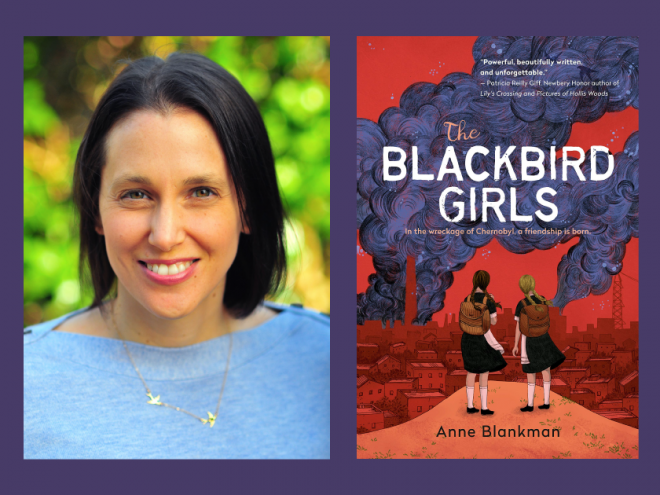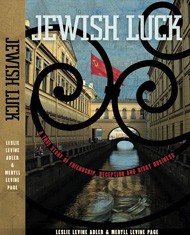Anne Blankman’s The Blackbird Girls is an ambitious project, a novel which weaves together two disasters in Soviet history. The novel begins in 1986, when Jewish fifth-grade student Valentina Kaplan learns that her father has been injured on the job. He works at the V.I. Lenin Power Station, otherwise known as Chernobyl. Families of Chernobyl workers had been lulled into a false sense of security; they had been given reassurances that the facility was safe, and that simple remedies could cure any ill effects in the unlikely case of an accident. Valentina learns that her life has been full of untruths, and that she and her mother will be forced to flee and navigate the labyrinths of a totalitarian state in order to survive.
As the story progresses, flashback chapters uncover the story of Rifka, a Jewish girl living in Kiev in 1941. Like Valentina, Rifka confronts the ingrained antisemitism of her fellow Ukrainians, who turn against their Jewish neighbors when the Nazis invade their country. As the plot unfolds, Valentina and Rifka become linked, and echoes of the past can be heard in the present.
Valentina and her mother meet another desperate Chernobyl family when Valentina’s schoolmate, Oksana, learns that her father has also been a victim of the accident. Oksana has repeatedly taunted Valentina with the unthinking prejudice against Jews which she has witnessed from her father. Oksana’s hatred seems unremarkable to the Kaplans; Valentina’s mother reminds her with bitter resignation, that “We’re Jews…Others are looking for a reason to hate us. Don’t give them any.” When their mutual suffering unites the two mothers and their daughters, Oksana is forced to examine the assumptions which had defined her life; additionally, a hidden history of child abuse has terrorized her and warped her self-image. Both girls find temporary shelter in Leningrad with Valentina’s grandmother, Rita, and the new cosmopolitan setting and the warmth of a Jewish matriarch become an emotional support for Oksana.
The narrative is complex, with several interweaving subplots in the present in addition to Rifka’s dilemma in the past. Both Rifka and Oksana find refuge and unconditional support where they would least have expected to find them. Rita helps cultivate Oksana’s gradual acceptance that someone could love her, in spite of her family’s legacy of dysfunction.
The blackbirds mentioned in the title are resilient creatures, according to the folklore which Rifka learns — a “link between heaven and earth…a symbol for eternity.” All the women and girls of this female-centered novel struggle to find support among one another, and also to build an inner strength which will help them to survive antisemitism, the lies of a totalitarian state, and the cruelty of abusive parents. Blankman’s characters live within the worst events of history, but ultimately take flight. The Blackbird Girls is highly recommended.
Emily Schneider writes about literature, feminism, and culture for Tablet, The Forward, The Horn Book, and other publications, and writes about children’s books on her blog. She has a Ph.D. in Romance Languages and Literatures.





